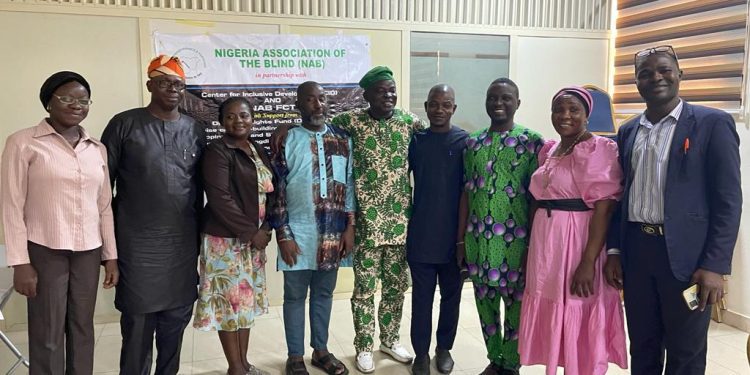The Lagos and Plateau State Governments have committed to adopting disability-inclusive public procurement processes with the aim of promoting disability inclusion in diverse sectors.
The commitments were during separate two-day workshop on Inclusive Public Procurement organized by the Nigeria Association of the Blind (NAB) in collaboration with the Centre for Inclusive Development (CID), and supported by the Disability Rights Fund (DRF).
In Lagos, the Director General of the Lagos State Public Procurement Agency (PPA), Mr. Fatai Idowu Onafowote, assured that PPA would provide the necessary support to other Ministries, Departments, and Agencies (MDA) in the state to be disability inclusive in its procurement processes.
In the same vein, the General of the Bureau of Public Procurement in Plateau State, Mr. Peter Dogo said the State is open to working with Persons with Disabilities (PWDs) to make the procurement system more inclusive.
Dogo also noted that the Plateau State government is in the process of adopting a disability-inclusive system whereby PWDs can apply through the portal easily.
While responding to the commitments of the government officials after the workshop which held in Lagos and Plateau States, Adeola Aina, NAB’s Administrative Assistant and Project Officer, Inclusive Public Procurement, explained that the disability-inclusive procurement system if adopted would help to provide income opportunities for PWDs who are contractors as well as promote disability inclusion in the systems and practices of the state governments.
Aina urged the duo to stay true to their words, stressing that NAB and its partners will continue a series of engagements to ensure that the promises are fulfilled and thereafter help to ensure disability-inclusive procurement system in the two states.
Aina noted that if the trained MDA officials should cascade the workshop to their colleagues, it would go a long way to stimulate a positive attitude to the disability-inclusive procurement process.
He said “the workshop was organized with the aim of enlightening MDAs on how to engage PWDs in the procurement process such that when they roll out procurement applications and biddings, they are able to give a quota to PWDs.
“It is also essential that they make the publication of their bidding accessible to PWDs, so that members of the disability community are able to access it and PWDs who are contractors are able to apply.”
While delivering his presentation at the workshop, Dr. Adebukola Adebayo, Disability-Inclusion Expert, shared that Disability inclusive public procurement is not limited to choosing contractors/vendors who are persons with disabilities but also choosing and rewarding contractors that employ persons with disabilities as well as clear procurement criteria that rewards accessibility and universal design; and procurement practices for care and support services that are compliant with the provisions of the state and national disability laws and the Convention on the Rights of Persons with Disabilities.
Adebayo also noted that “the key principles of Disability-Inclusive Public Procurement are intertwined with the promotion of social inclusion; Adherence to rights-based approaches; Provides access to equal social and economic opportunities, and Contributes to sustainable livelihoods and economic empowerment.”
He thereafter appealed to the state governments to begin to engage businesses owned by PWDs with the aim of complying with disability-inclusive public procurement.
At the end of the workshop, participants who are representatives from different MDAs developed a Strategic Action Plan which would be harmonized and re-shared with the MDAs to make their procurement processes inclusive.

